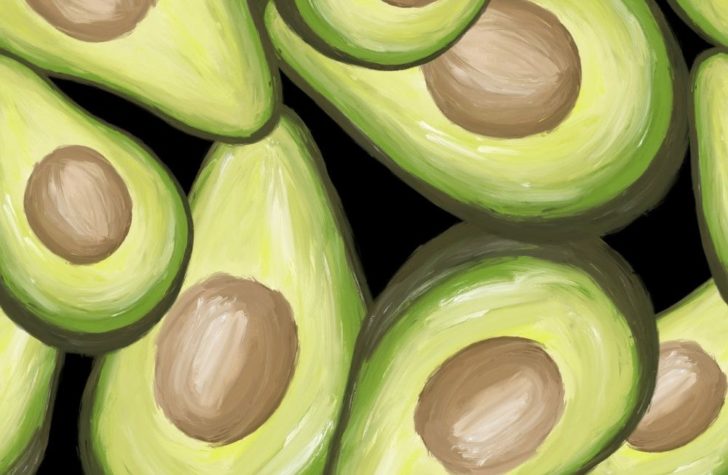Vegan Diet: A Comprehensive Overview

Introduction
A vegan diet, also known as a plant-based diet, is becoming increasingly popular worldwide. It involves the exclusion of animal-derived foods and by-products, focusing instead on fruits, vegetables, grains, legumes, nuts, and seeds. This article aims to provide a thorough understanding of the vegan diet, its various types, quantitative measurements, differences between them, and a historical analysis of their advantages and disadvantages.
Types of Vegan Diets

There are several types of vegan diets, each with its own characteristics and principles. The most common ones include:
1. Whole Food Vegan Diet: This type emphasizes unprocessed, whole foods like fruits, vegetables, whole grains, and legumes. It typically avoids refined sugars, flours, and oils.
2. Raw Vegan Diet: Advocates of this diet believe that cooking diminishes the nutritional value of food. Therefore, they consume only raw, uncooked plant-based foods.
3. High-Fat Vegan Diet: This variation emphasizes incorporating healthy fats into the diet, such as avocados, nuts, seeds, and oils. It can be useful for individuals who struggle to get enough calories from carbohydrates.
4. Gluten-Free Vegan Diet: This diet excludes foods containing gluten, such as wheat, barley, and rye. It is essential for individuals with gluten intolerance or celiac disease.
5. Junk Food Vegan Diet: Despite its name, this type focuses on replicating familiar comfort foods using plant-based ingredients. It typically includes processed foods like vegan meats, cheeses, and desserts.
Quantitative Measurements of Vegans Diets
Research has showcased several quantitative measurements related to vegan diets. These include:
1. Nutritional Content: Vegan diets can be rich in essential nutrients such as fiber, antioxidants, and vitamins. However, careful planning is necessary to ensure adequate intake of protein, vitamin B12, iron, calcium, and omega-3 fatty acids.
2. Environmental Impact: Studies have demonstrated that adopting a vegan diet can significantly reduce carbon emissions, land use, and water consumption compared to animal-based diets. Veganism has emerged as a sustainable choice to combat climate change.
3. Health Benefits: Numerous studies have linked vegan diets to reduced risks of chronic diseases, including heart disease, diabetes, obesity, and certain types of cancer. Additionally, vegans generally have lower body mass index (BMI) and cholesterol levels.
4. Economic Considerations: Vegan diets can be cost-effective as plant-based foods are often less expensive than animal products. However, the cost may vary depending on the availability and accessibility of organic and specialty vegan products.
Differences Between Vegan Diets
While all vegan diets share the common principle of excluding animal products, they can differ in various aspects:
1. Macronutrient Composition: Some vegan diets may prioritize high carbohydrate intake, while others focus on higher fat or protein consumption. These differences cater to various individual needs and preferences.
2. Ethical Considerations: Some vegans follow the diet solely for ethical reasons, avoiding any form of animal exploitation and promoting animal rights. Others may adopt a vegan diet primarily for health or environmental concerns.
3. Cultural Influences: Vegan diets can also vary based on cultural practices and traditions. For instance, East Asian vegan diets often include a variety of tofu, tempeh, seaweed, and fermented foods.
Historical Examination of Advantages and Disadvantages
The history of vegan diets is filled with both advantages and disadvantages. Some notable advantages include:
1. Ethical Reasons: Vegan diets align with the philosophy of animal rights, promoting compassion and respect towards all living beings.
2. Environmental Impact: Plant-based diets contribute to reducing greenhouse gas emissions, deforestation, and depletion of natural resources.
3. Health Benefits: Numerous studies highlight the potential health benefits associated with vegan diets, including weight management and the prevention of chronic diseases.
However, it is important to consider the potential disadvantages as well:
1. Nutritional Deficiencies: Poorly planned vegan diets may lack sufficient intake of certain nutrients, particularly vitamin B12, which is mainly found in animal products.
2. Potential Social Challenges: Following a vegan diet may pose challenges in social settings, where non-vegan options are more readily available.
3. Intolerance or Allergies: Some individuals may have intolerances or allergies to certain plant-based foods, limiting their dietary choices and nutritional options.
[INSERT VIDEO HERE – A brief video explaining the benefits of a vegan diet]
Conclusion
In summary, the vegan diet encompasses a range of principles and variations, each with its own benefits and considerations. This article has provided a comprehensive overview of vegan diets, including their types, quantitative measurements, differences, and historical analysis. By understanding the foundations of veganism, individuals can make informed decisions about adopting this lifestyle, benefiting their health, the environment, and promoting animal welfare.

















